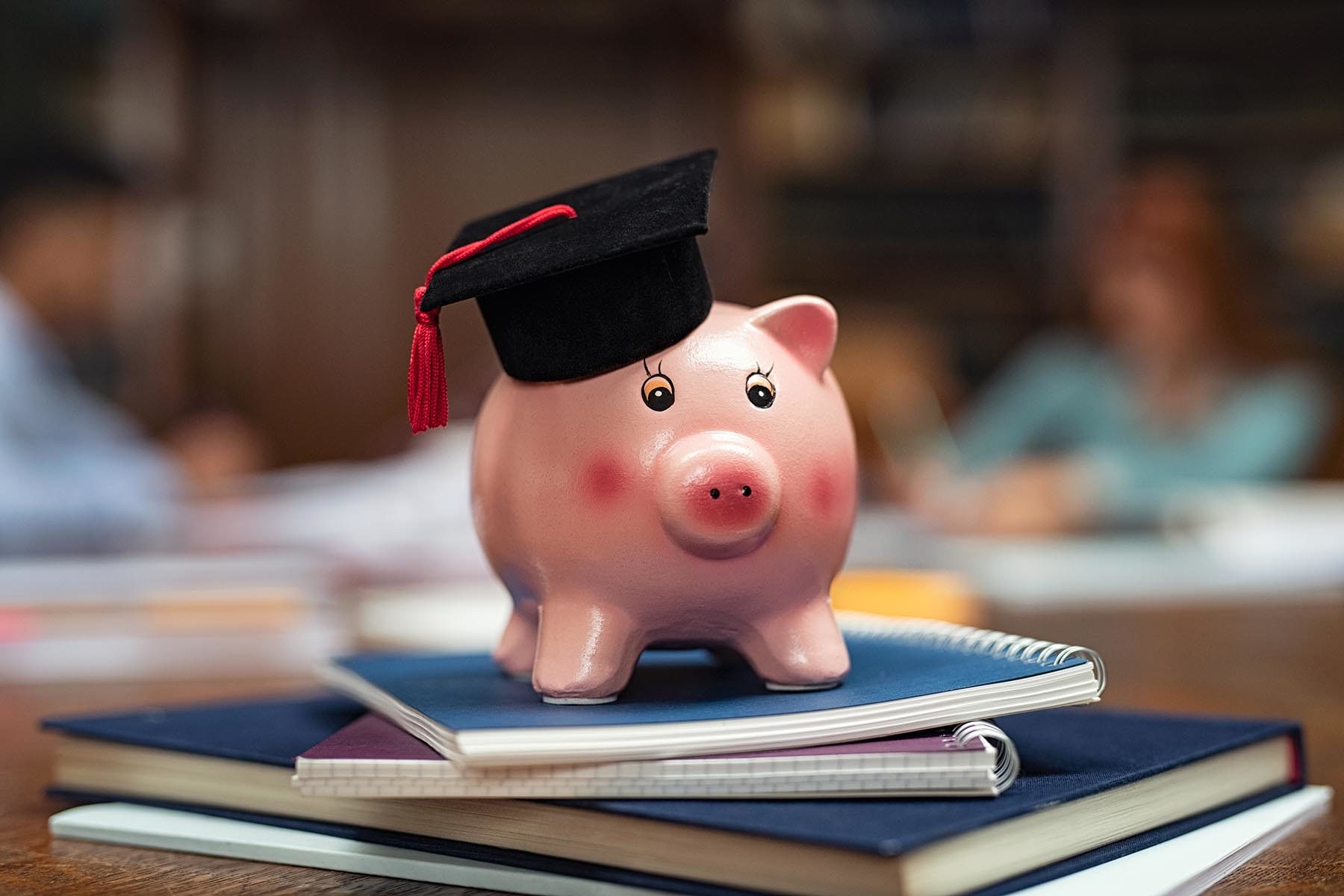Those student loans seemed like such a good idea at the time. All you had to do was sign a piece of paper and bingo! You were good to go in school for another semester. But then according to that legendary fighter, Rocky Balboa, “You wanna dance, you gotta pay the band, you understand? If you wanna borrow, you gotta pay the man.” And if you danced your way through school by borrowing money you’re now going to have to pay the band.
Three months to zero hours
If you graduated in May of this year, your grace period will likely end in November and you will need to begin paying back those student loans. If you’re typical you’ll want to get those loans paid off as fast as possible. So what can you do?
Move back in with dear old Mom and Dad
We understand that one of the last things you want to do is move back in with your parents … back to that old bedroom with those Pearl Jam posters and those tacky Star Wars curtains … and that dinky little study desk. But and here’s the biggest but – this is the number one way to pay off those college debts fast.
Do the math
If you don’t believe us, just do the math. Let’s suppose you owe $25,000 at 6% interest. While $25,000 is actually a bit below the national average for college graduates we’ll use this for the sake of our example. We’ll further assume that your net annual income is $30,000. If you live rent free with your parents you should be able to easily devote around 30% of your income to paying off those student loans. Do this and you would have that $25,000 paid off in three years and a month. And if you were to up those payments to 40% of your take home (net) salary you’d be debt free in a little more than two years. Just imagine. By November of 2016 you’d have all your student loans paid off and would be ready to go out, get your own place, maybe buy a new car and start living debt free.
Join the Peace Corps
You might remember the old Peace Corp slogan, “The toughest job you’ll ever love.” It was created back in the 1990s and as great a line as it might be, it doesn’t tell the whole story, which is what volunteering in the Peace Corp could mean to you personally. While this might make you a better person there are other more tangible benefits. For example, certain of your federal student loans may be eligible for deferment while in the Corps and for Public Service Loan Forgiveness. If you have Perkins loans they may be eligible for partial cancellation. Plus, when you complete your service, you will be given a “readjustment” allowance of $7,425 (pre-tax) that you could use any way you wish (hint: you could use the money to pay off some of your loans?).When you return to the U.S. the Peace Corps will also provide you with assistance related to jobs and education. It publishes online job announcements, information about graduate schools and articles related to possible careers and hosts career events throughout the year in Washington, DC and across the country. It will even help you translate you field experience for prospective employers.
Flee the country
Another way to get rid of those onerous student loans fast is to leave the country. There are countries where you could earn decent money but that have very low costs of living. You might be able to get a job teaching English somewhere in Central America or the West Indies that would pay well but where it costs next to nothing to live. For example, we read recently that a couple can live well in Nicaragua for $995 a month. If a couple can live well on this amount, just think would you could live on if you were single. Let’s suppose you could earn $2,000 a month teaching math to kids or as a software engineer. Go to the Bankrate Pay Down Debt calculator, plug in the amount of your student loans (again, let’s assume $25,000 at 6%) and your payment of, say, $600 a month, and you’ll be debt free in three years and 11 months. Boost that monthly payment to $800 and you’d be debt free in a little less than three years. Plus, you’d have had the experience of living somewhere exotic for three or four years – with lots of stories to share with your friends and family members when you get back to the states.
Enlist in the French Foreign Legion
This is by far the most radical way to get rid of student debts but here’s the deal. If you join the French Foreign Legion you would be given the opportunity to visit foreign lands. Plus, the Legion actually encourages people to choose a new identity. You could go from being Alex Hatfield to being Serge Simpson with the stroke of a pen and leave all your student loans behind. If you serve just one stint in the Legion you can apply for French citizenship, which would give you protection from those nasty creditors. In addition, you would be eligible for the French state run health care system, which we understand is pretty great.
Join the Military
You don’t have to join the French Foreign Legion to escape your student loan debts. You could enlist in the U.S. Army, Navy or Air Force as the military offers some great education resources. This includes the Montgomery GI Bill, which can cover more than half the cost of a college education. If you’re facing some heavy debts, the Army National Guard offers some sweet options including the Student Loan Repayment Program, which will pay as much as $50,000 of your loans – depending on your field of study. In addition, being in the Guard is only a part time proposition — every other weekend and two months in the summer – so you could still work a full time job and use some of the money you earn to pay down your student loans.
Volunteer for AmeriCorp/Vista
Vista would place you with a nonprofit group or groups while Americorps would put you in a variety of jobs from environmental cleanup to teaching school. In either case, you would earn a stipend of up to $7,400 for a one-year stint along with $4725 to pay off your student loans.
 It doesn’t have to be 10 years
It doesn’t have to be 10 years
Unless you chose some other repayment plan, you were automatically placed into 10-Year Standard Repayment. This means you will be required to pay off your loans in 10 years at a fixed interest rate. But as you read in this article, there are a number of ways to get those loans paid off in less than four years. While some of them are on the exotic side (think French Foreign Legion) there are others like working abroad that could be both fun and financially rewarding. If none of these appeals to you, you could still make things easier by switching from that 10-Year Standard Repayment Plan to a different option. As you might have read Pres. Obama recently signed an executive order that makes many more people eligible for the Pay As You Earn repayment program. If you could qualify for this plan your monthly payments would be capped at 10% of your disposable income. It will take you the same number of years to pay off your loans but your monthly payments should be a lot lower, which would take some of the sting out of repayment.
Check out the other options
There are a number of other repayment plans available you might want to check out. In addition to Pay As You Earn there are three other income-driven programs, along with Extended Repayment and Graduated Repayment. Talk with your lender and you might be able to find the one repayment program that would be best for you given your earnings and financial circumstances.







